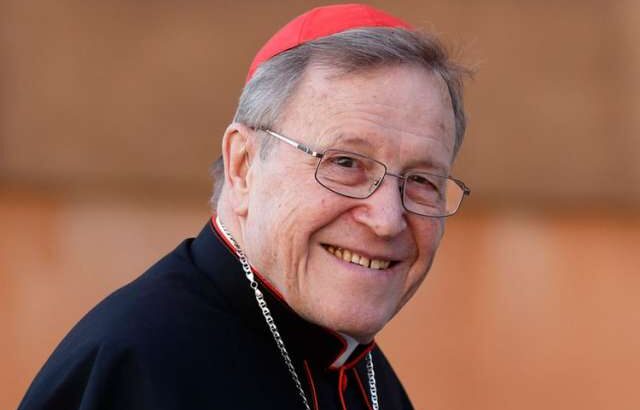Freiburg (KNA) The German Cardinal Walter Kasper (90) has once again criticised the reform plans of the German Catholic bishops. The former Bishop of Rottenburg-Stuttgart and Curia Cardinal told the online platform “communio.de” that the establishment of a Synodal Committee, which is to prepare the appointment of a new decision-making body with equal representation of bishops and lay people such as ordinary clergy and religious in the Church in Germany, lacks any legitimacy.This planned Synodal Council had ultimately met with harsh criticism in Rome, according to Kasper; and: “To simply continue with this project anyway and create a fait accompli cannot be understood as anything other than a defiant challenge that cannot end well.”Instead of a theologically unauthorised Synodal Council, it would be more expedient to strengthen the culture of dialogue within the church and to view synodality as a new style. This would be in the “spirit of fraternal co-operation between bishops, priests, religious and lay people, whereby women and men, young people and the elderly, poor and foreigners should be appropriately included”.In this way, the World Synod initiated by Pope Francis has moved in the direction of the Second Vatican Council (1962-1965), said Kasper. This is a paradigm shift insofar as the Church no longer sees itself as a one-sided institutionalised hierarchical society, but as a community based on the one common baptism, “in which all, different charisms, vocations and ministries are on the way together in synodal cooperation”.The planned Synodal Council envisages an equal number of bishops, priests, religious and lay people and, as an advisory and governing body, will deal with key developments in the church and society. The preparatory committee met for the first time in November. Critics, including “Communio” editor Jan-Heiner Tück, had repeatedly objected that a synodal council would be tantamount to a reorganisation of the episcopal constitution and that the voluntary self-commitment to majority decisions of a national synodal council could lead to dissonance with Rome.Kasper also emphasised: “Such a synodal council would undoubtedly interfere with the sacramental structure and would limit or even undermine the bishop’s authority to lead.” The council would then also have more powers than the Bishops’ Conference, which according to current canon law is an advisory body with a few exceptions. According to the cardinal, he also does not understand how one can assume an ordained ministry “and then renounce the fulfilment of the obligations that are essential to this ministry and which one has publicly assumed at ordination”. – Kasper was head of the Vatican Ecumenical Office from 2001 to 2010 and was previously Bishop of Rottenburg-Stuttgart.
Cardinal Kasper renews criticism of German synodal path
 German Cardinal Walter Kasper, pictured in a Feb. 21 file photo. Photo: CNS
German Cardinal Walter Kasper, pictured in a Feb. 21 file photo. Photo: CNS 
